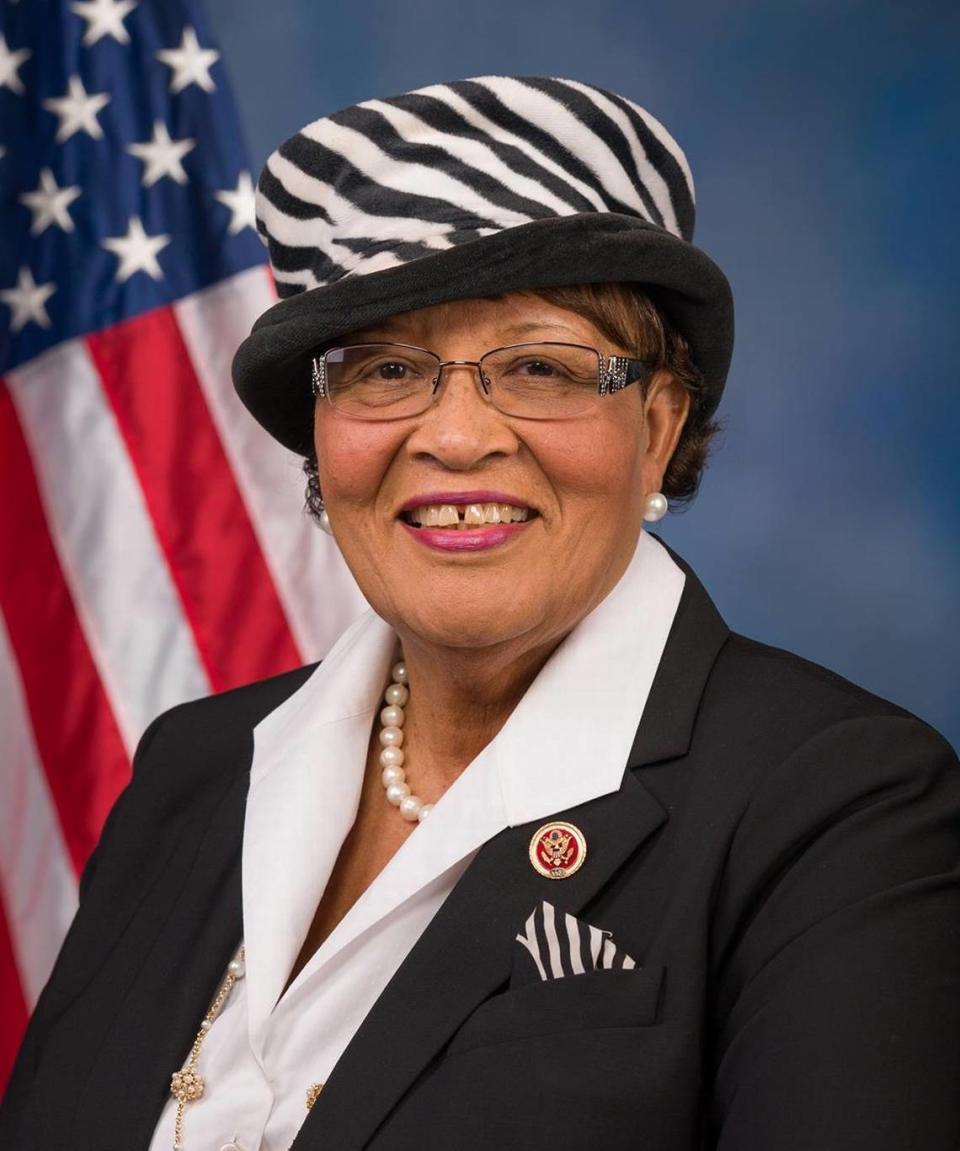Charlotte representative wants justice for Black farmers. Here’s what she’s proposing
- Oops!Something went wrong.Please try again later.
Rep. Alma Adams is introducing a bill Friday that aims to encourage a new generation of Black farmers.
“This Black History Month, it’s important we recognize the unjust history of farming and agriculture in America,” Adams said in a written statement to McClatchy. “During the 20th Century, Black Farmers lost over $300 billion worth of farmland and acreage — a loss that further exacerbated the wealth gap for Black Americans.”
Adams, a Democrat from Charlotte, introduced the Justice for Black Farmers Act in the U.S. House, while Sen. Cory Booker, a Democrat from New Jersey, introduced a bill in the Senate mirroring hers.
Adams said the Justice for Black Farmers Act intends to end discrimination carried out by the U.S. Department of Agriculture, protect the 50,000 remaining Black farmers from losing their land, provide land grants to new Black farmers and restore the land base that was lost.
“Additionally, the Justice for Black Farmers Act provides substantial resources for the 1890 Land-Grant Institutions to help Black farmers get up and running and includes funding for all HBCUs to expand their agriculture research and courses of study,” Adams said.
There are 19 universities considered 1890 land-grant institutions, including N.C. A&T State University.
The USDA has a long history of discriminating against Black farmers throughout the country.
Racism at the USDA
Agriculture Secretary Tom Vilsack acknowledged the racism perpetuated by the USDA while testifying before Congress in March 2021.
“The history of systemic discrimination against Black farmers has been well-documented, including a 2003 U.S. Commission on Civil Rights report which found that Black farm loan applications took 220 days to process compared to their white counterparts, or a more recent study found that although Black farmers are disproportionately underrepresented among farmers, were foreclosed on at a higher rate than any other race,” Vilsack testified.
Moe Matthews, a Black farmer from North Carolina who held an unrelated news conference at the Legislative Building in Raleigh on Thursday, told McClatchy he believes the current administration is doing a magnificent job and the USDA has made funds available.
“The communities now need to be able to access those funds and educational growth necessary for the small farmers,” Matthews said.
Helping a new generation
He added that when he talks about farmers, he’s really talking about land owners and mostly younger people who hold careers outside farming but have inherited their parents or grandparents’ land and want to take advantage of it.
He said the majority of calls he receives comes from people in that situation.
The bill focuses on helping young adults have access to programs to develop skills to farm or ranch. If passed the USDA would pay participants to serve as on-farm apprentices at no cost to those who are socially disadvantaged, just beginning or focused on organic farming and ranching. Black participants would be given priority for land grants.
1890 schools and nonprofits serving Black farmers would be given resources to provide free assistance to farmers in finding land for the USDA to purchase and give in land grants to new Black farmers, and provide the resources to get the farm running, train and assist in a succession plan and legal advice.
More work needed, lawmakers say
There is a pending lawsuit against the USDA after socially disadvantaged farmers alleged they made new investments based on a provision in the American Rescue Plan that would help them pay off defaulted loans, but the USDA never followed through on providing that help.
The Inflation Reduction Act, signed into law a year later by President Joe Biden, than repealed that provision from the American Rescue Plan.
Adams and Booker had worked together on a previous version of the Justice for Black Farmers Act and portions of it made it into the Inflation Reduction Act, which Booker called “a positive step by providing $2.2 billion for financial assistance to farmers who have suffered discrimination by USDA.”
But Booker added, in a news release, that more needs to be done.
“The Justice for Black Farmers Act seeks to correct persistent injustices and help restore the land base that Black farmers have lost,” Booker said. “I am proud to work with Representative Adams on this landmark legislation that would empower a new generation of Black farmers.”
Luciana Perez Uribe Guinassi contributed to this report.


